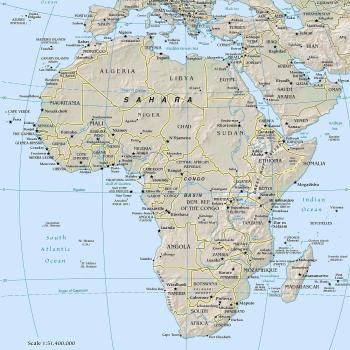The law of war rests on a fundamental, common-sense moral premise: The cost of war should be borne as much as possible by the combatants alone. If a war must be fought, then the death and destruction should be limited to those who fight those wars. From this single concept flow the three primary principles of the Law of Armed Conflict: necessity, distinction, and proportionality.
Necessity requires that combatants engage only those targets that are necessary to achieve lawful military objectives. While it may be necessary to destroy a bridge to halt the advance of an approaching enemy force, that single lawful destruction of a bridge does not therefore mean that all bridges in any given combatant country are legitimate targets.
Distinction requires combatants to discriminate between combatants and innocents when engaging in military operations. A fundamental component of distinction is the wearing of uniforms and the adoption of specific unit insignia to identify lawful combatants. While cover, concealment, and camouflage are appropriate for military units, civilian disguise is forbidden. In the absence of uniforms or other military markings, distinction becomes difficult, if not impossible.
Proportionality prohibits combatants from using more force than necessary to accomplish a military objective. Perhaps the most vague of the three guiding principles, proportionality does not require tit-for-tat (i.e., respond to attacks only with the same level of force used by the enemy) but instead permits, for example, the use of bombs to neutralize snipers, artillery to strike at IED emplacers, and other decisive weapons that far outgun the opposition. While hitting a house containing snipers with a JDAM may be a proportionate use of force, flattening entire city blocks to destroy the single sniper's nest would, most likely, not be appropriate.
Why write this brief legal lecture? Because when you understand these principles, it's immediately apparent that al Qaeda, the Taliban, Hamas, Hezbollah, and virtually every jihadist terrorist force in the world violate each of these three guiding principles as a matter of policy and practice in virtually every "military" operation they've mounted. Every single Taliban wearing the civilian clothes of the surrounding villagers is committing a war crime. Every single Hamas fighter who launches his rockets at an Israeli town from a school courtyard commits a war crime. Every single al Qaeda suicide bombing of a hospital, restaurant, or even military checkpoint is a war crime.
These war crimes are designed not merely to make it easier for terrorists to engage American soldiers (whom they could never defeat in open combat); they are also deliberately chosen to inflate civilian casualties. To the Taliban, civilian deaths in an American air strike are a feature, not a bug. For the Taliban and al Qaeda, their civilian disguise is win-win. If we fail to fire because we fear civilian casualties, they live to fight another day. If we fire anyway, and civilians die, they use the deaths as propaganda to further their jihadist cause. Our compliance with the law of war, coupled with their defiance of that law, not only gives them an immense advantage on the battlefield but is also the ultimate cause of virtually every single civilian casualty in Afghanistan and Iraq (just as it's the cause of virtually every civilian casualty in Gaza and the West Bank).
So what possible moral justification exists for incentivizing these illegal acts by bestowing on captured terrorists the privilege of the full and comprehensive due process protections of a civilian trial? A prisoner of war captured in uniform would not enjoy such protections. Does the Left not understand that imposing such burdens on our justice system leads not to respect from our enemies but to contempt and exploitation? Does the Left not understand that the enemy's use of civilian disguise makes it infinitely more difficult to identify combatants and therefore dramatically raises the civilian death toll (as well as the difficulty of prosecution)?
Further, does the Left not understand that civilian trials (together with the consequent evidentiary requirements) would require our soldiers to act, essentially, as detectives in the middle of a shooting war? That the evidence-collection process itself will cost the lives of young soldiers sent to interrogate witnesses and gather forensic evidence? Or that the disclosure of information sources during ongoing military operations compromises those sources and impairs our ability to obtain further intelligence?
I've heard the anti-war Left talk about our "moral authority" as they argue for trying war criminals in U.S. District courts. But whom does this grand moral gesture impress? The enemy? Most certainly not. The besieged civilian populations who live in fear of jihadist rule? Definitely not. Instead (as I've seen with my own eyes), they shake their heads at our rules, puzzled at the shackles we place on ourselves while their lives are on the line and their futures are at stake. The moral gesture is designed primarily to impress those not in the line of fire, those whose lives are not at stake—a transnational leftist elite that risks little yet demands so very much from our men and women in uniform.





